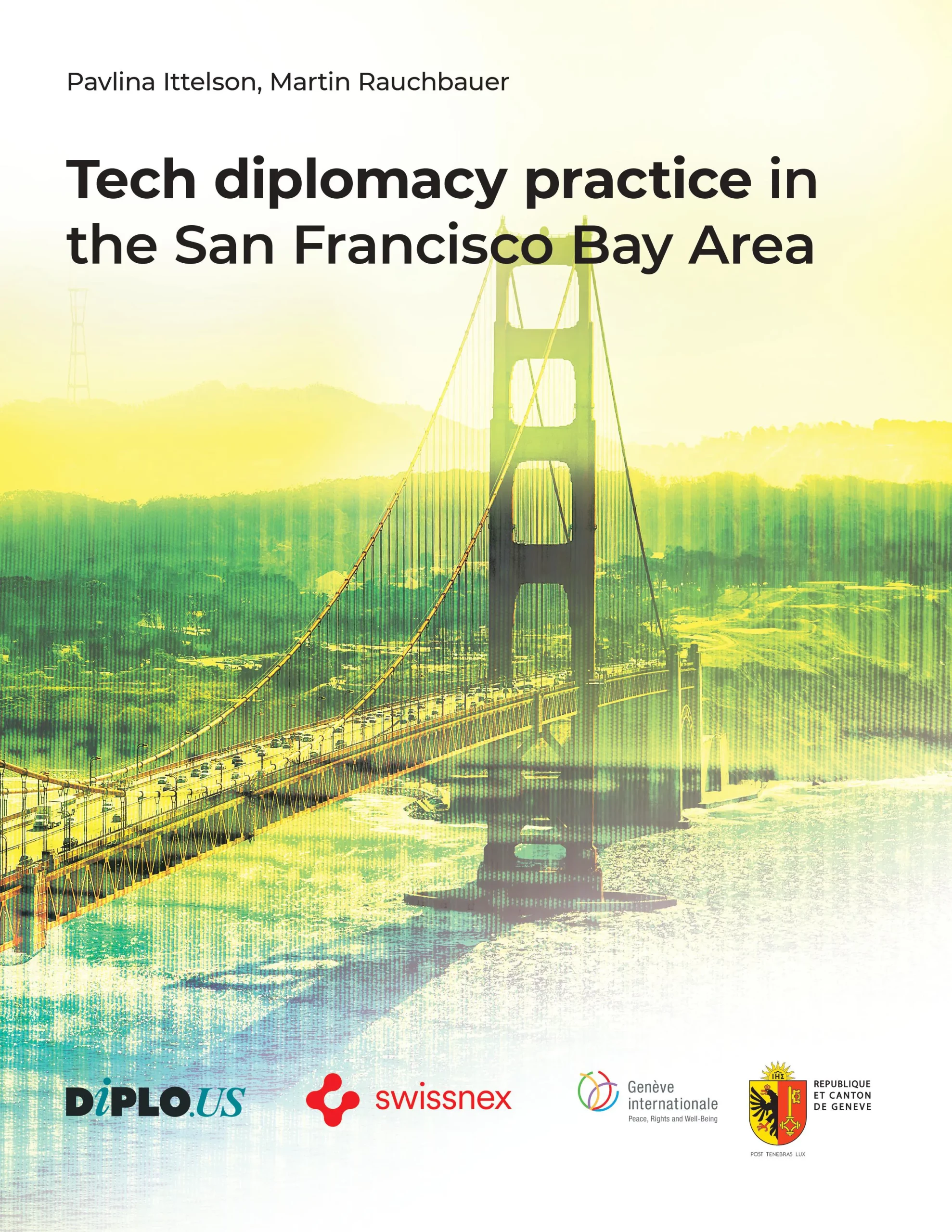A fresh look five years after the first mapping in 2018, this report examines how countries engage in tech diplomacy in the San Francisco Bay Area. The report maps a selection of diplomatic representations to illustrate the variety of approaches engaged and identifies both the benefits and challenges for countries and tech companies in pursuing the practice of tech diplomacy.
What happens in the San Francisco Bay Area (Bay Area) profoundly impacts the world, both the digital and real. Since 2018, when Diplo’s first report on the interactions of governments and tech companies in Silicon Valley was released, this rings even more true. Whether talking about shifting work and meetings online, geopolitical tensions, supply chain crisis, or the rise of artificial intelligence (AI), tech companies in the Bay Area have an outsized global impact. Issues regarding security, disinformation, democracy and human rights protections, and the future development of individual countries are all impacted by the practices of tech companies in the Bay Area.
Countries are increasingly focused on addressing the digital aspects of foreign policy. The latest developments show a rise in digital issues on the policy agenda (both on national and international levels), the creation of new posts of digital and tech diplomats, as well as the adoption of new policies guiding these efforts. The digital aspects of foreign policy have matured, and conversations between diplomats and tech companies in the Bay Area have moved from economic and innovation issues to democracy, human rights online, security, fintech, the environment, and much more.
This report focuses on tech diplomacy as part of digital diplomacy, the role of the Bay Area, and the ways in which countries engage in the practice of tech diplomacy in the Bay Area. The report also maps a selection of local diplomatic representations to illustrate the variety of approaches by different countries and additionally identifies the main challenges and benefits for both diplomatic representations and tech companies in pursuing the practice of tech diplomacy.
The main premises of the report are that exchanges between diplomatic representations and tech companies in the Bay Area contribute to detecting emerging issues on the diplomatic agenda, as well as open policy dialogue between stakeholders, and allow for informed decision-making for both governments and tech companies. Understanding what is happening on the ground is, therefore, essential, especially for countries that are exploring the possibility of establishing a dedicated tech diplomacy practice.

